Charles E W Bean, Diaries, AWM38 3DRL 606/262/1 - 1916 - 1934 - Part 3
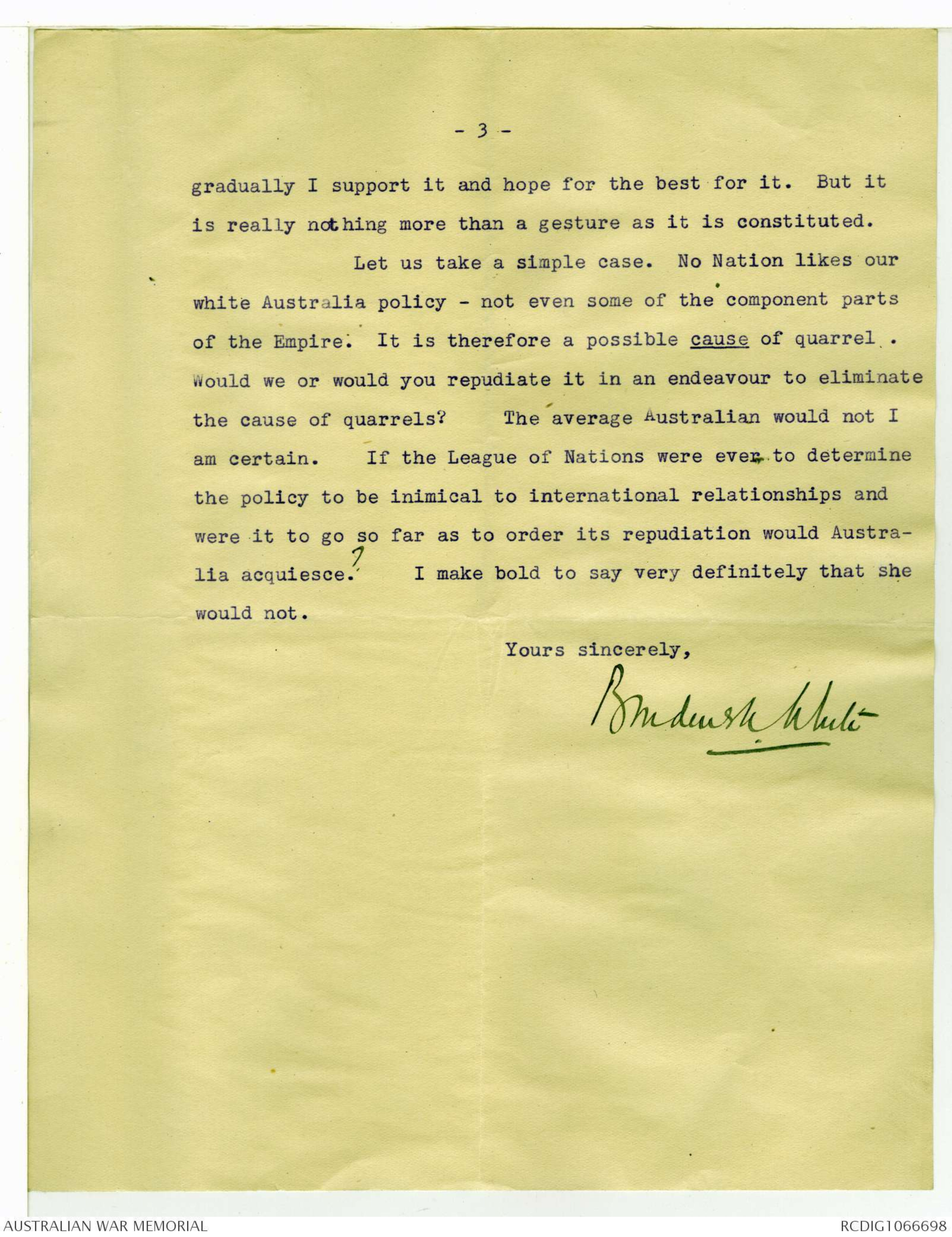
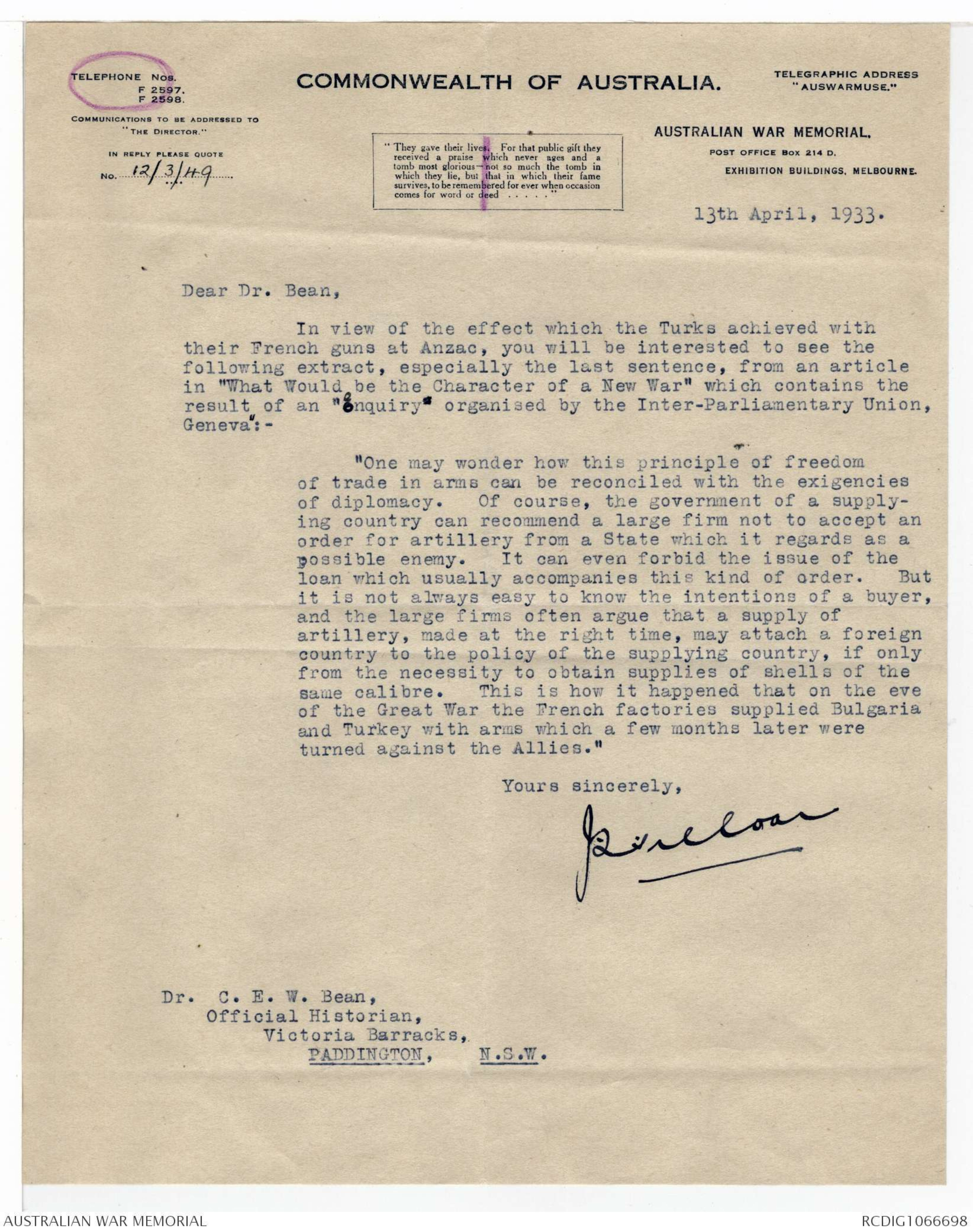
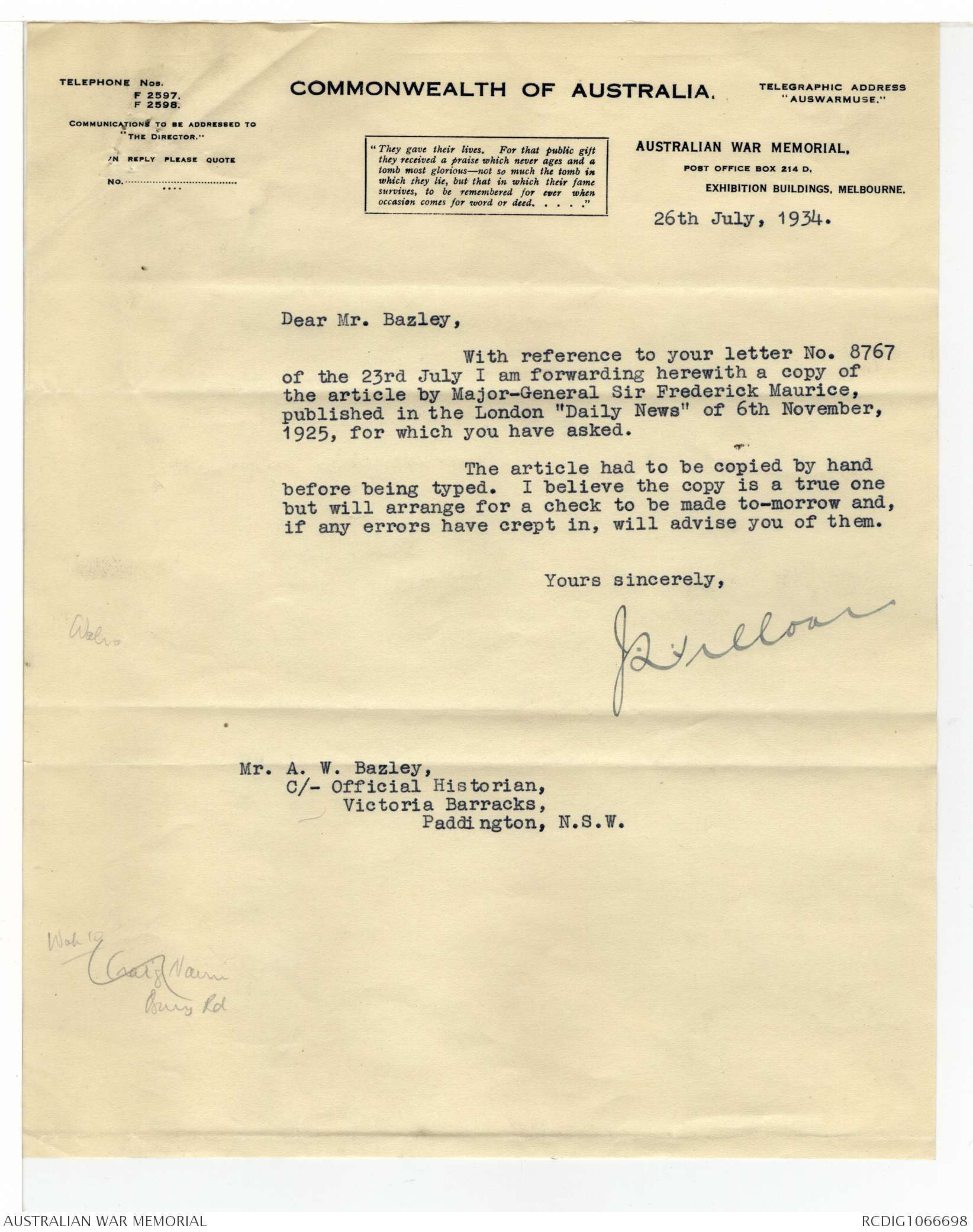
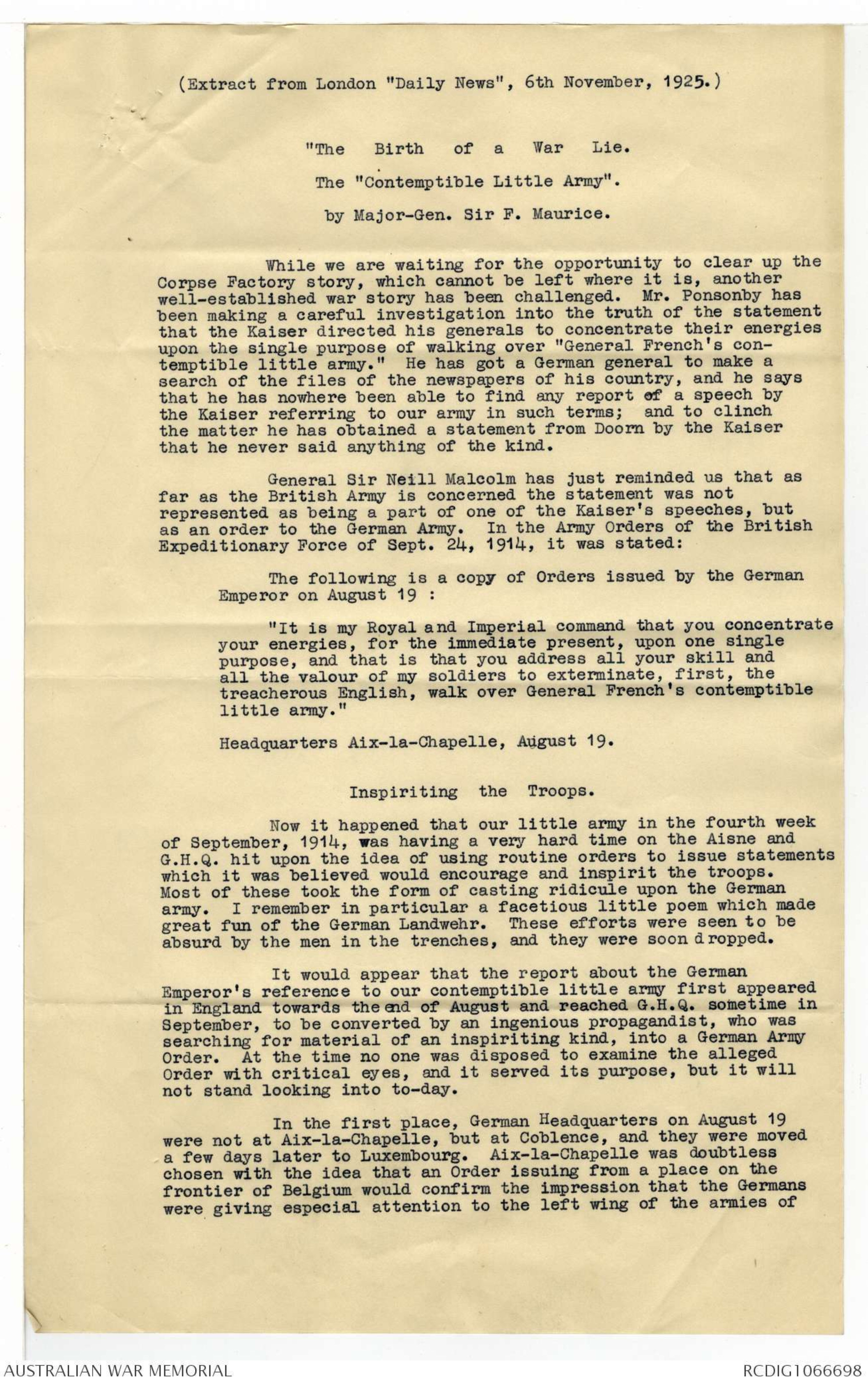
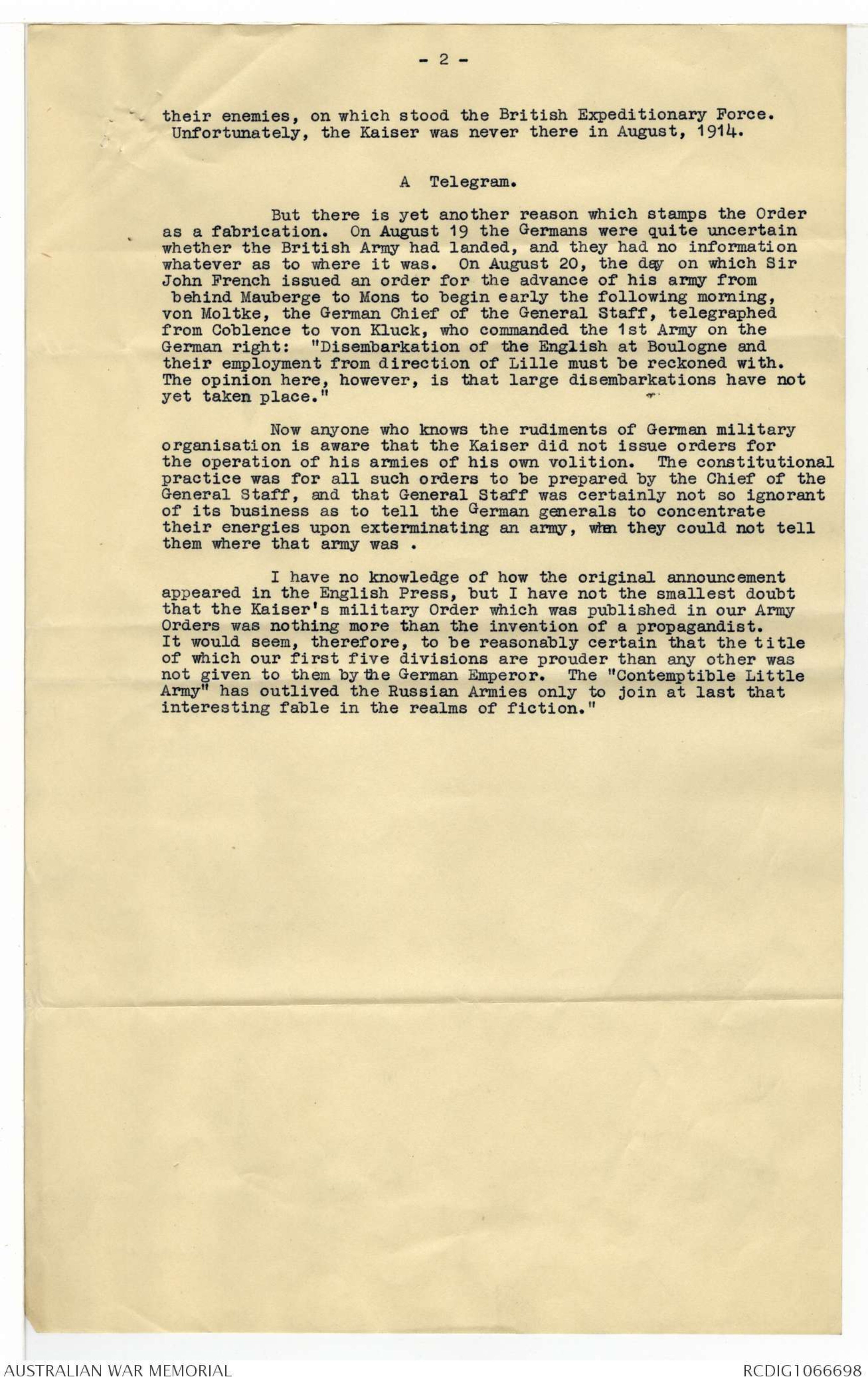
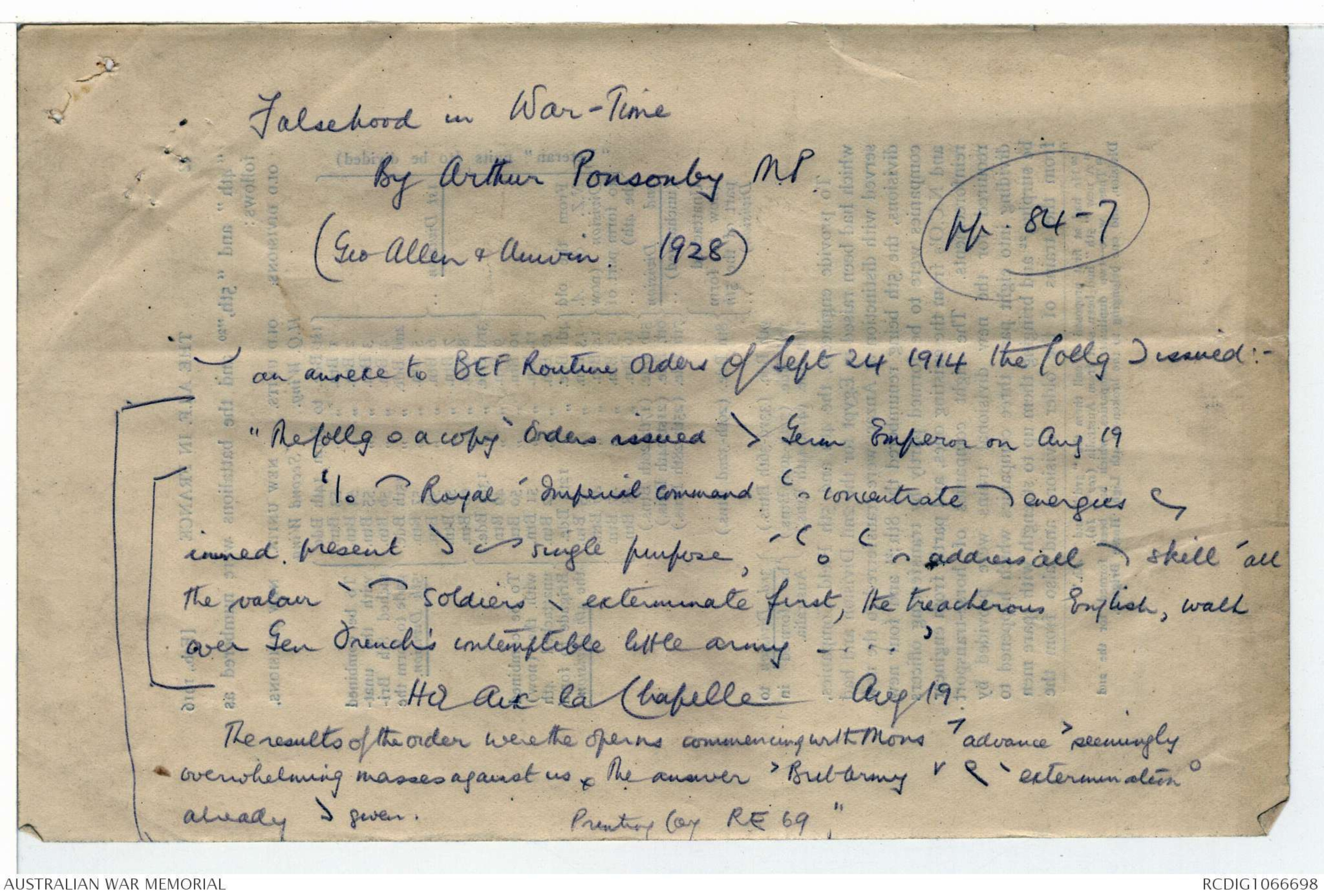
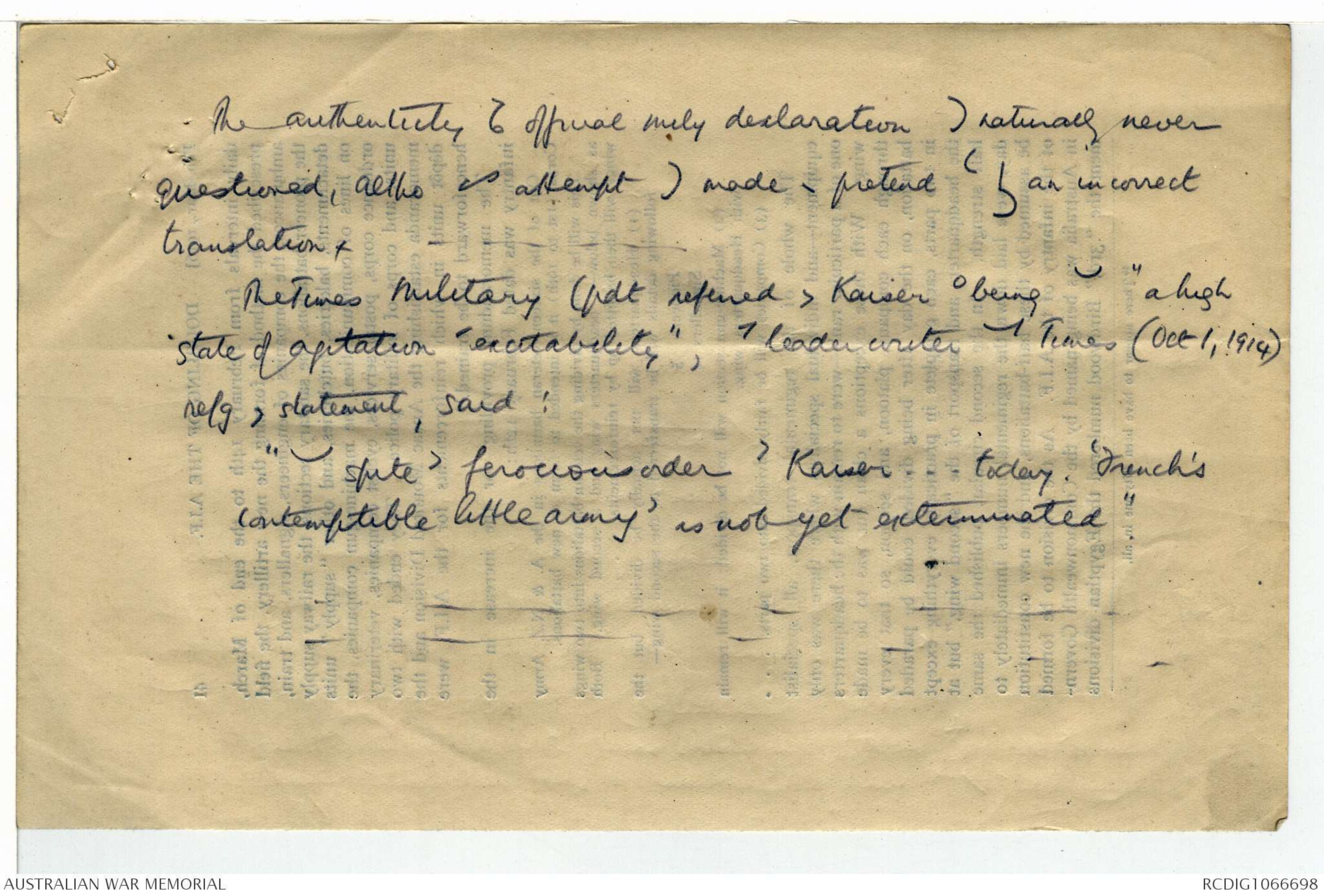
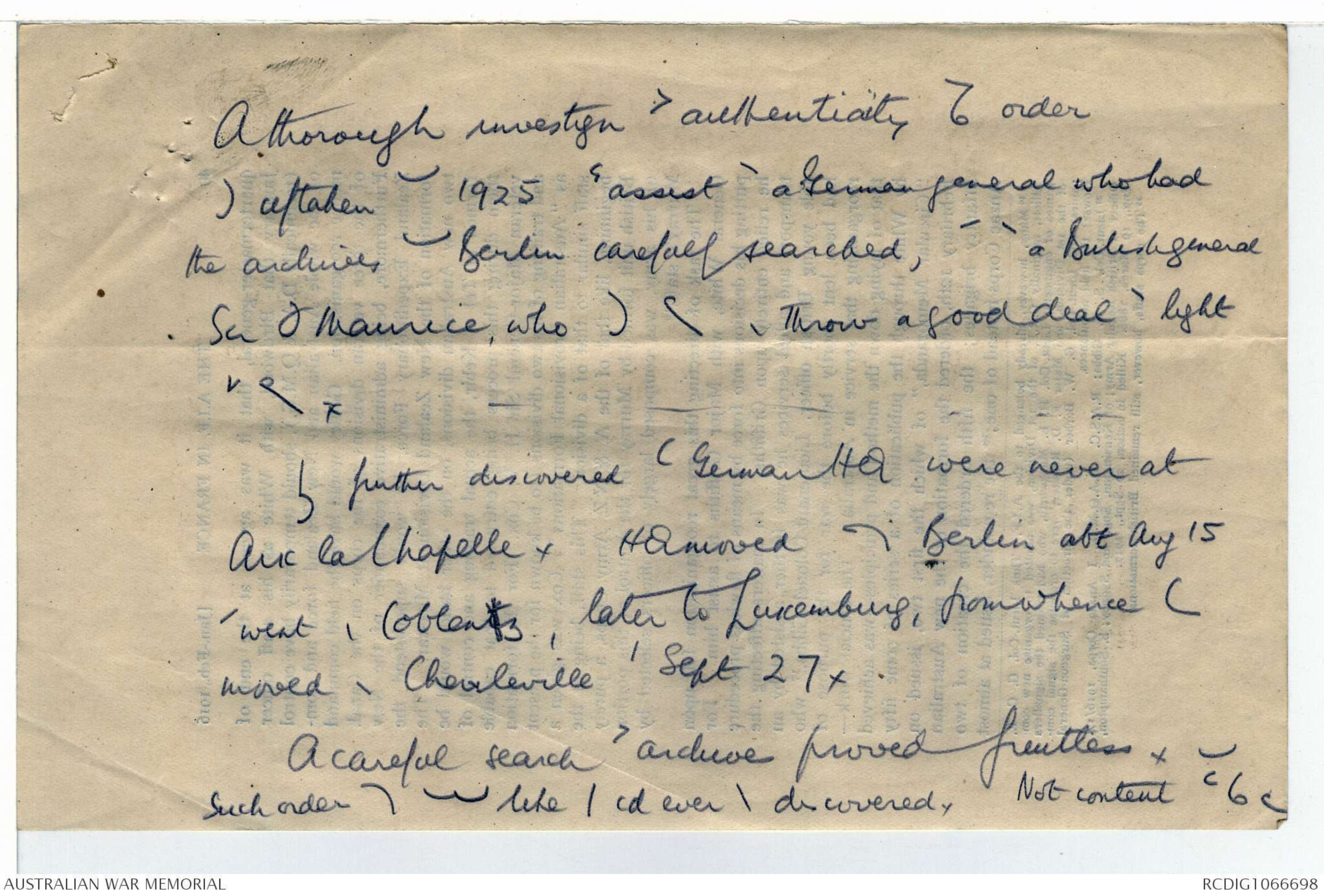
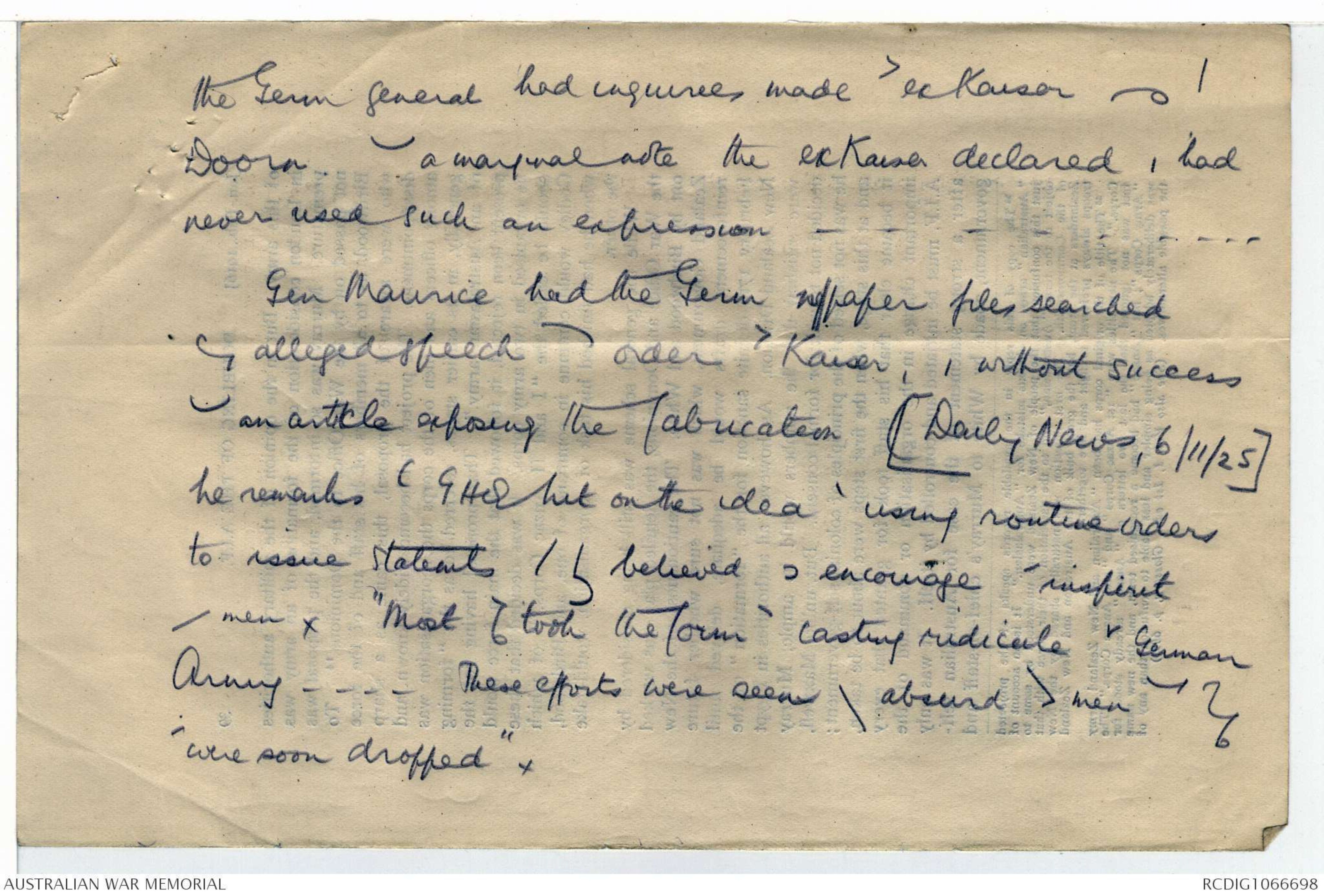
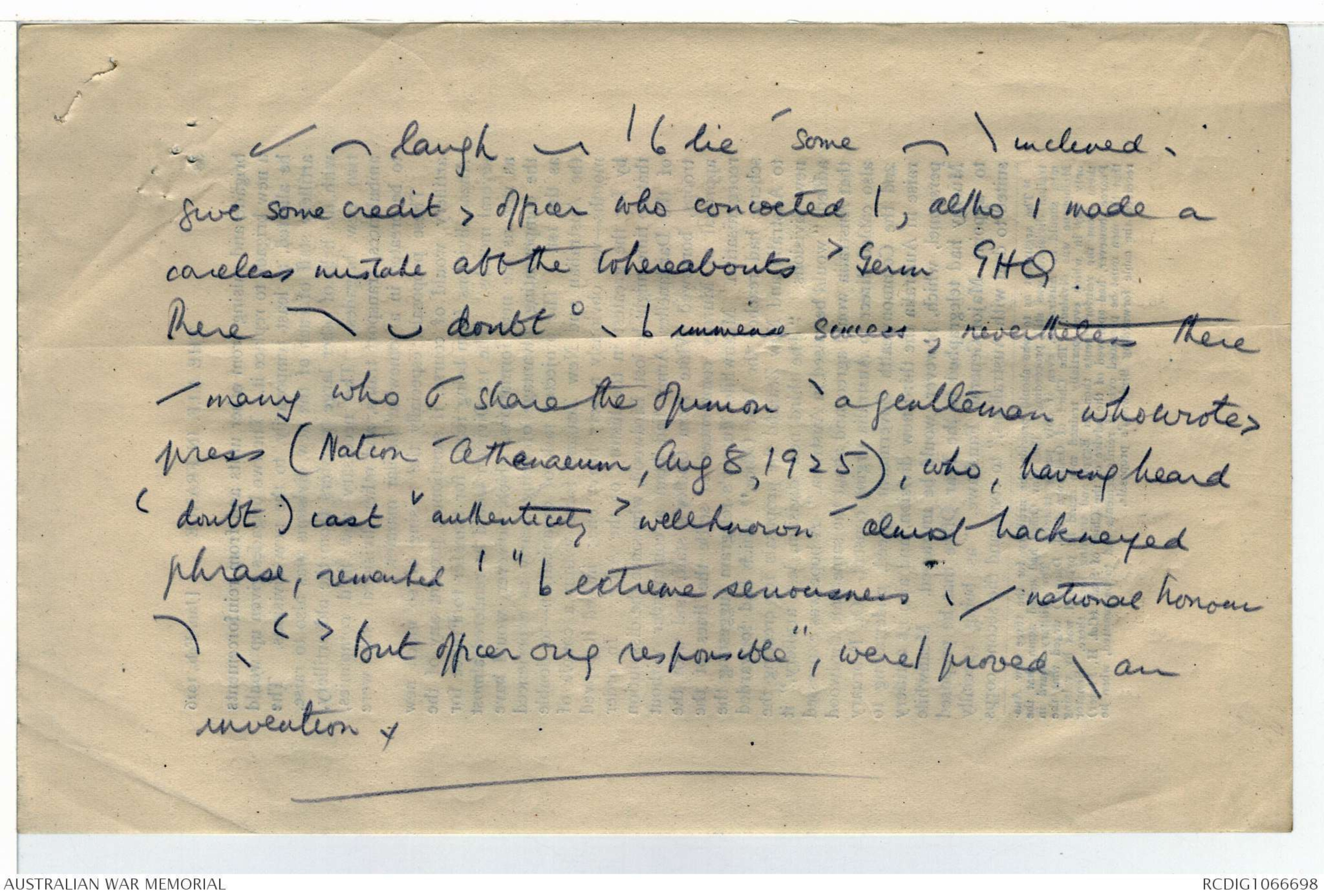
-3-
gradually I support it and hope for the best for it. But it
is really nothing more than a gesture as it is constituted.
Let us take a simple case. No Nation likes our
white Australia policy - not even some of the component parts
of the Empire. It is therefore a possible cause of quarrel.
Would we or would you repudiate it in an endeavour to eliminate
the cause of quarrels? The average Australian would not I
am certain. If the League of Nations were ever to determine
the policy to be inimical to international relationships and
were it to go so far as to order its repudiation would Australia
acquiesce? I make bold to say very definitely that she
would not.
Yours sincerely,
Brudenell White
TELEPHONE NOS.
F 2597.
F 2598.
COMMUNICATIONS TO BE ADDRESSED TO
"THE DIRECTOR".
IN REPLY PLEASE QUOTE
NO. 12/3/49.
COMMONWEALTH OF AUSTRALIA.
"They gave their lives. For that public gift they
received a praise which never ages and a
tomb most glorious - not so much the tomb in
which they lie, but that in which their fame
survives, to be remembered for ever when occasion
comes for word or deed . . . . . "
TELEGRAPHIC ADDRESS
"AUSWARMUSE."
AUSTRALIAN WAR MEMORIAL,
POST OFFICE BOX 214 D.
EXHIBITION BUILDINGS, MELBOURNE.
13th April. 1933.
Dear Dr. Bean,
In view of the effect which the Turks achieved with
their French guns at Anzac, you will be interested to see the
following extract, especially the last sentence, from an article
in "What Would be the Character of a New War" which contains the
result of an "enquiry" organised by the Inter-Parliamentary Union,
Geneva":-
"One may wonder how this principle of freedom
of trade in arms can be reconciled with the exigencies
of diplomacy. Of course, the government of a supplying
country can recommend a large firm not to accept an
order for artillery from a State which it regards as a
possible enemy. It can even forbid the issue of the
loan which usually accompanies this kind of order. But
it is not always easy to know the intentions of a buyer,
and the large firms often argue that a supply of
artillery, made at the right time, may attach a foreign
country to the policy of the supplying country, if only
from the necessity to obtain supplies of shells of the
same calibre. This is how it happened that on the eve
of the Great War the French factories supplied Bulgaria
and Turkey with arms which a few months later were
turned against the Allies."
Yours sincerely,
J. S. Treloar
Dr. C. E. W. Bean,
Official Historian,
Victoria Barracks,
PADDINGTON, N.S.W.
TELEPHONE Nos.
F 2597.
F 2598.
COMMUNICATIONS TO BE ADDRESSED TO
"THE DIRECTOR".
IN REPLY PLEASE QUOTE
NO......
COMMONWEALTH OF AUSTRALIA.
"They gave their lives. For that public gift
they received a praise which never ages and a
tomb most glorious - not so much the tomb in
which they lie, but that in which their fame
survives, to be remembered for ever when
occasion comes for word or deed. . . . "
TELEGRAPHIC ADDRESS
"AUSWARMUSE."
AUSTRALIAN WAR MEMORIAL,
POST OFFICE BOX 214 D,
EXHIBITION BUILDINGS, MELBOURNE.
26th July, 1934.
Dear Mr. Bazley,
With reference to your letter No. 8767
of the 23rd July I am forwarding herewith a copy of
the article by Major-General Sir Frederick Maurice,
published in the London "Daily News" of 6th November,
1925, for which you have asked.
The article had to be copied by hand
before being typed. I believe the copy is a true one
but will arrange for a check to be made to-morrow and,
if any errors have crept in, will advise you of them.
Yours sincerely,
J. S. Treloar
Mr. A. W. Bazley,
C/- Official Historian,
Victoria Barracks,
Paddington, N.S.W.
[*Walro*]
[*Wah 10Craig NairnBuiy Rd*]
(Extract from London "Daily News", 6th November, 1925.)
"The Birth of a War Lie.
The "Contemptible Little Army".
by Major-Gen. Sir F. Maurice.
While we are waiting for the opportunity to clear up the
Corpse Factory story, which cannot be left where it is, another
well-established war story has been challenged. Mr. Ponsonby has
been making a careful investigation into the truth of the statement
that the Kaiser directed his generals to concentrate their energies
upon the single purpose of walking over "General French's contemptible
little army". He has got a German general to make a
search of the files of the newspapers of his country, and he says
that he has nowhere been able to find any report of a speech by
the Kaiser referring to our army in such terms; and to clinch
the matter he has obtained a statement from Doorn by the Kaiser
that he never said anything of the kind.
General Sir Neill Malcolm has just reminded us that as
far as the British Army is concerned the statement was not
represented as being a part of one of the Kaiser's speeches, but
as an order to the German Army. In the Army Orders of the British
Expeditionary Force of Sept. 24, 1914, it was stated:
The following is a copy of Orders issued by the German
Emperor on August 19:
"It is my Royal and Imperial command that you concentrate
your energies, for the immediate present, upon one single
purpose, and that is that you address all your skill and
all the valour of my soldiers to exterminate, first, the
treacherous English, walk over General French's contemptible
little army".
Headquarters Aix-la-Chapelle, August 19.
Inspiriting the Troops.
Now it happened that our little army in the fourth week
of September, 1914, was having a very hard time on the Aisne and
G.H.Q. hit upon the idea of using routine orders to issue statements
which it was believed would encourage and inspirit the troops.
Most of these took the form of casting ridicule upon the German
army. I remember in particular a facetious little poem which made
great fun of the German Landwehr. These efforts were seen to be
absurd by the men in the trenches, and they were soon dropped.
It would appear that the report about the German
Emperor's reference to our contemptible little army first appeared
in England towards the end of August and reached G.H.Q. sometime in
September, to be converted by an ingenious propagandist, who was
searching for material of an inspiriting kind, into a German Army
Order. At the time no one was disposed to examine the alleged
Order with critical eyes, and it served its purpose, but it will
not stand looking into to-day.
In the first place, German Headquarters on August 19
were not at Aix-la-Chapelle, but at Coblence, and they were moved
a few days later to Luxembourg. Aix-La-Chapelle was doubtless
chosen with the idea that an Order issuing from a place on the
frontier of Belgium would confirm the impression that the Germans
were giving especial attention to the left wing of the armies of
- 2 -
their enemies, on which stood the British Expeditionary Force.
Unfortunately, the Kaiser was never there in August, 1914.
A Telegram.
But there is yet another reason which stamps the Order
as a fabrication. On August 19 the Germans were quite uncertain
whether the British Army had landed, and they had no information
whatever as to where it was. On August 20, they day on which Sir
John French issued an order for the advance of his army from
behind Mauberge to Mons to begin early the following morning,
von Moltke, the German Chief of the General Staff, telegraphed
from Coblence to von Kluck, who commanded the 1st Army on the
German right: "Disembarkation of the English at Boulogne and
their employment from direction of Lille must be reckoned with.
The opinion here, however, is that large disembarkations have not
yet taken place."
Now anyone who knows the rudiments of German military
organisation is aware that the Kaiser did not issue orders for
the operation of his armies of his own volition. The constitutional
practice was for all such orders to be prepared by the Chief of the
General Staff, and that General Staff was certainly not so ignorant
of its business as to tell the German generals to concentrate
their energies upon exterminating an army, when they could not tell
them where that army was.
I have no knowledge of how the original announcement
appeared in the English Press, but I have not the smallest doubt
that the Kaiser's military Order which was published in our Army
Orders was nothing more than the invention of a propagandist.
It would seem, therefore, to be reasonably certain that the title
of which our first five divisions are prouder than any other was
not given to them by the German Emperor. The "Contemptible Little
Army" has outlived the Russian Armies only to join at last that
interesting fable in the realms of fiction."
Falsehood in War-Time
By Arthur Ponsoby M.P.
(Geo Allen & Unwin. 1928)
pp. 84-7
In an annexe to BEF Routine Orders of Sept 24 1914 the follg was issued:-
"The follg is a copy of Orders issued by the Germ Emperor on Aug 19
'It is my Royal and Imperial command that you concentrate your energies for the
immed. present upon one single purpose, and that is that you address all your skill and all
the valour of my soldiers to exterminate first, the treacherous English, walk
over Gen French's contemptible little army . . . . .'
HQ Aix-la Chapelle Aug 19
The results of the order were the operns commencing with Mons and the advance of the seemingly
overwhelming masses against us. The answer of the Brit Army on the subject of extermination has
already been given.
Printing Coy RE 69 "
The authenticity of this official mily declaration was naturally never
questioned, altho one attempt was made to pretend that it was an incorrect
translation. . . . . . .
The Times Military (pdt referred to the Kaiser as being in "a high
state of agitation and excitability", and the leader writer in the Times (Oct 1, 1914)
refg, to the statement, said:
"In spite of the ferocious order of the Kaiser . . . today. 'French's
contemptible little army' is not yet exterminated."
A thorough investigation of the authenticity of this order
was u/taken in 1925 with the assist of a German general who had
the archives in Berlin carefully searched, and of a British general
Sir F Maurice, who was able to to throw a good deal of light
on the subject.
It was further discovered that German HQ were never at
Aix La Chapelle. HQ moved from Berlin abt Aug 15
and went to Coblentz, later to Luxemburg, from whence they
moved to Chevileville on Sept 27.
A careful search of the archives proved fruitless. No
such order or anything like it cd ever be discovered. Not content with this however
the Germ general had inquiries made of the ex Kaiser himself at
Doorn. In a marginal note the ex Kaiser declared he had
never used such an expression - - - -
Gen Maurice had the Germ n/paper files searched
for the alleged speech or order of the Kaiser, but without success
In an article exposing the fabrication [Daily News, 6/11/25]
he remarks that GHQ hit on the idea of using routine orders
to issue statemts which it was believed would encourage and inspirit
our men. "Most of this took the form of casting ridicule on the German
Army - - - - These efforts were seen to be absurd by the men in the trenches
and were soon dropped".
We may laugh now at this lie and some may be inclined to
give some credit to the officer who concocted it, altho he made a
careless mistake abt the whereabouts of the Germ GHQ.
There could be no doubt as to its immense success, nevertheless there
are many who will share the opinion of a gentleman who wrote to the
press (Nation and Athenaeum, Aug 8, 1925), who, having heard
that doubt was cast on the authenticity of the well known and almost hackneyed
phrase, remarked on "its extreme seriousness to our national honour
or to that of the Brit officer orig responsible", were it proved to be an
invention.
 Deb Parkinson
Deb ParkinsonThis transcription item is now locked to you for editing. To release the lock either Save your changes or Cancel.
This lock will be automatically released after 60 minutes of inactivity.